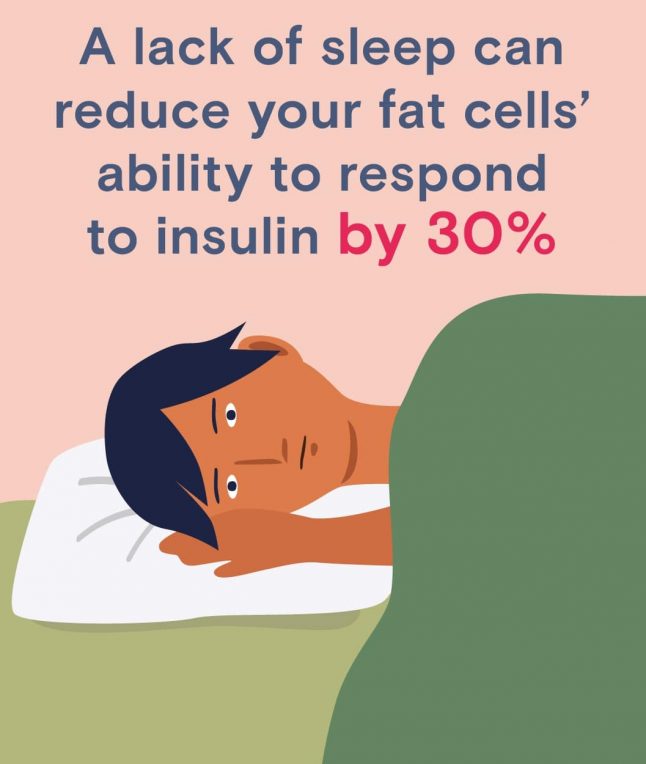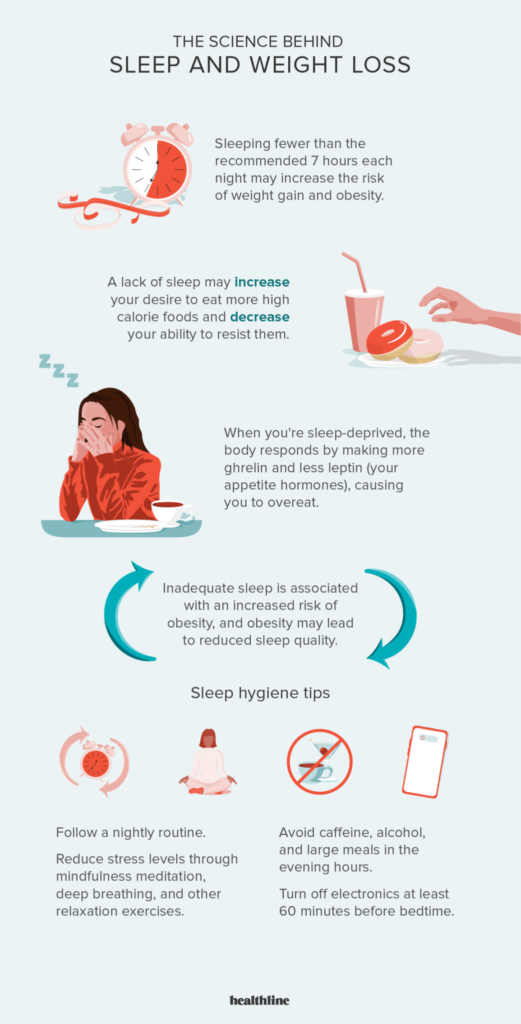
The Importance of Rest in Your Weight Loss Journey
In your weight loss journey, it’s easy to get caught up in the hustle and bustle of diets and workouts, forgetting about an essential aspect: rest. While diet and exercise are crucial for shedding unwanted pounds, giving your body time to rest and recover is equally important. In fact, rest plays a vital role in promoting weight loss and overall well-being. By understanding the significance of rest and incorporating it into your routine, you can optimize your weight loss efforts and achieve long-lasting success.
Table of Contents
ToggleImportance of Rest in Weight Loss
Rest is often overlooked in the weight loss journey, but it plays a crucial role in achieving your goals. When it comes to weight loss, many people focus solely on intense exercise and strict diets, neglecting the importance of giving their bodies time to rest and recover. However, understanding the impact of rest on your body’s recovery process, muscle repair and growth, preventing overtraining, and optimizing hormone levels can significantly enhance your weight loss efforts.
Body’s Recovery Process
Rest is essential for your body’s recovery process. During physical activity, your muscles undergo stress and micro-tears, which need time to repair and rebuild stronger and denser. Rest days allow the body to heal and recover, ensuring proper muscle repair and growth. Without sufficient rest, your muscles can become fatigued and prone to injury, hindering your weight loss progress.
Muscle Repair and Growth
Rest is vital for muscle repair and growth, which are essential for weight loss. When you exercise, you break down muscle fibers, and during rest periods, these fibers repair and become stronger. This process increases you’re your metabolism and promotes greater calorie burning even during periods of rest. By incorporating rest into your routine, you can maximize muscle repair and growth, leading to increased fat loss and improved body composition.
Preventing Overtraining
Overtraining is a common pitfall on the weight loss journey. When you push your body too hard without proper rest, it can lead to several negative effects, such as decreased performance, increased risk of injury, and stalled weight loss. Rest days are crucial in preventing overtraining, allowing your body and mind to recover from intense workouts and reducing the risk of burnout. By recognizing the importance of rest, you can achieve a more balanced and sustainable weight loss journey.
Optimizing Hormone Levels
Rest plays a significant role in optimizing hormone levels, which in turn impacts weight loss. Sleep is particularly important for regulating hormone production, such as leptin and ghrelin, which control hunger and appetite. Lack of restful sleep can disrupt these hormones, leading to increased hunger and cravings, making it harder to stick to a healthy eating plan. By prioritizing rest, you can help maintain hormonal balance and support your weight loss efforts.
Effects of Sleep on Weight Loss
Sleep, or lack thereof, can influence your weight loss progress in various ways. Understanding the effects of sleep on increased hunger and appetite, impact on insulin sensitivity, energy balance and calorie burning, and muscle preservation is crucial for optimizing your weight loss journey.
Increased Hunger and Appetite
Lack of sleep can lead to increased hunger and appetite, making it challenging to maintain a calorie deficit for weight loss. Sleep deprivation affects hormones responsible for regulating appetite, such as ghrelin and leptin. When you don’t get enough sleep, ghrelin levels increase, signaling hunger to your brain, while leptin levels decrease, reducing satiety signals. This hormonal imbalance results in a greater likelihood of overeating and choosing unhealthy, calorie-dense foods.
Impact on Insulin Sensitivity
Sleep deprivation can negatively impact insulin sensitivity, increasing the risk of developing insulin resistance and metabolic disorders. When you don’t get enough sleep, your body becomes less efficient at utilizing insulin, leading to elevated blood sugar levels and potential weight gain. By prioritizing restful sleep, you can improve insulin sensitivity, enhance metabolic function, and support your weight loss efforts.
Energy Balance and Calorie Burning
Adequate sleep plays a crucial role in energy balance and calorie burning. When you are well-rested, your body functions optimally, allowing for efficient calorie expenditure. Lack of sleep can disrupt normal metabolic processes, making it harder for your body to burn calories efficiently. Additionally, sleep deprivation can lead to fatigue and decreased energy levels, making it challenging to engage in physical activity and meet your weight loss goals.
Muscle Preservation
Sleep is essential for muscle preservation, especially during a calorie-restricted weight loss journey. Inadequate sleep can result in muscle loss instead of fat loss, compromising your body composition goals. During sleep, your body releases growth hormone, which aids in muscle recovery and repair. Sufficient rest allows for the preservation of lean muscle mass, ensuring that your weight loss primarily comes from fat stores, rather than muscle tissue.
Rest Days and Exercise
Rest days are often underestimated when it comes to exercise and weight loss. However, incorporating rest days into your routine is essential for several reasons, including muscle adaptation and strength, reducing the risk of injury, and balancing intensity and frequency to optimize your weight loss journey.
Importance of Recovery Days
Rest days are crucial for giving your body time to recover from intense workouts. When you engage in exercise, your muscles undergo stress and fatigue. Rest days provide an opportunity for your muscles to repair and rebuild, improving their strength and endurance. By incorporating recovery days into your exercise routine, you allow your body to adapt and progress, leading to more effective weight loss outcomes.
Muscle Adaptation and Strength
Rest days allow your muscles to adapt and grow stronger. When you push your muscles through exercise, they experience micro-trauma, which triggers the process of muscle repair and growth. However, this process requires rest to be fully effective. By incorporating rest days, you give your muscles the time they need to adapt and strengthen, enhancing their performance during subsequent workouts and promoting continuous progress.
Reducing the Risk of Injury
Overtraining without proper rest can increase the risk of injury. When you consistently engage in high-intensity workouts without sufficient recovery, your muscles and joints become fatigued and prone to overuse injuries. Rest days allow your body to repair damaged tissues and reduce inflammation, minimizing the risk of injury. By incorporating rest days into your routine, you ensure a safer and more sustainable weight loss journey.
Balancing Intensity and Frequency
Rest days allow for a balance between exercise intensity and frequency. It’s essential to challenge your body with workouts that push your limits, but it’s equally important to provide adequate rest to avoid burnout. By alternating intense workouts with rest days, you give your body the opportunity to recover while still maintaining a consistent exercise routine. This balance allows for optimal weight loss results while minimizing the risk of fatigue or plateauing.
Active Recovery Techniques
While rest days are crucial, engaging in active recovery techniques during those days can further enhance your weight loss journey. Active recovery involves low-intensity activities that promote blood flow, joint mobility, and muscle relaxation. Incorporating activities such as low-intensity cardiovascular exercises, stretching and mobility exercises, yoga and pilates, and foam rolling and self-massage can contribute to faster recovery and improved overall well-being.
Low-Intensity Cardiovascular Activities
Engaging in low-intensity cardiovascular activities, such as walking or swimming, on rest days can promote blood flow and aid in muscle recovery. These activities help flush out metabolic waste products and deliver necessary nutrients to muscle tissues, enhancing the recovery process. Additionally, low-intensity cardio exercises provide a gentle form of aerobic activity without placing excessive stress on the body.
Stretching and Mobility Exercises
Stretching and mobility exercises are essential for maintaining joint and muscle flexibility. These activities can help alleviate muscle soreness and stiffness, especially after intense workouts. By incorporating stretching and mobility exercises on rest days, you improve your overall range of motion and reduce the risk of injury during future workouts. Additionally, these activities promote relaxation and stress reduction, contributing to a better overall weight loss experience.
Yoga and Pilates
Yoga and Pilates are popular forms of active recovery that offer numerous benefits for both the body and mind. These practices combine mindfulness, controlled movements, and deep breathing, promoting relaxation and stress reduction. They help improve flexibility, core strength, and balance while providing a low-impact workout. By incorporating yoga or pilates into your rest days, you can enhance recovery, improve overall body awareness, and support your weight loss goals.
Foam Rolling and Self Massage
Foam rolling and self-massage techniques are effective in relieving muscle tension and promoting recovery. These techniques involve using a foam roller or massage tools to apply pressure to specific muscles, releasing knots and tightness. Foam rolling can enhance blood flow, increase flexibility, and reduce muscle soreness. By incorporating foam rolling and self-massage into your rest days, you can reduce muscle tension and improve overall muscle function, supporting your weight loss efforts.
Increasing Restfulness
In addition to incorporating rest days and active recovery techniques, making choices that prioritize restfulness can significantly benefit your weight loss journey. Establishing a sleep routine, creating a relaxing environment, avoiding stimulants, and reducing screen time are effective strategies for improving the quality and quantity of your rest.
Establishing a Sleep Routine
Creating a consistent sleep routine is crucial for improving the restfulness of your sleep. Going to bed and waking up at the same time every day, including weekends, helps regulate your internal body clock. Establishing a regular bedtime routine can also signal your body that it’s time to wind down and prepare for sleep. By prioritizing a consistent sleep schedule, you can enhance the quality and duration of your rest, supporting your weight loss goals.
Creating a Relaxing Environment
Creating a relaxing sleep environment is essential for maximizing restfulness. Ensure your bedroom is dark, quiet, and at a comfortable temperature. Remove electronic devices that can emit stimulating lights or sounds, and consider using blackout curtains or a white noise machine to optimize your sleep environment. By promoting a calm and peaceful atmosphere, you can create the ideal conditions for restful sleep and enhance your weight loss journey.
Avoiding Stimulants
Stimulants such as caffeine and nicotine can interfere with your ability to fall asleep and stay asleep. Limiting or avoiding these substances, especially in the evening, can significantly improve your restfulness. Stimulants can disrupt your natural sleep-wake cycle, making it harder to achieve restorative sleep. By being mindful of your consumption of caffeine and nicotine, especially in the hours leading up to bedtime, you can ensure a more restful sleep and support your weight loss efforts.
Reducing Screen Time
Excessive screen time, particularly before bed, can hinder restfulness. The blue light emitted by electronic devices, such as smartphones and tablets, can suppress the production of melatonin, a hormone that regulates sleep. Engaging in screen time too close to bedtime can disrupt your body’s natural sleep-wake cycle and make it harder to fall asleep. By reducing screen time and implementing a digital detox before bed, you can improve the quality of your sleep and enhance your weight loss journey.
Rest and Dieting
Rest plays a critical role in the success of a weight loss journey, not just in terms of physical recovery, but also in relation to dietary choices. Recognizing the impact of rest on hunger and satiety hormones, improved food choices, reduced emotional eating, and enhanced digestion and nutrient absorption is essential for optimizing your weight loss efforts.
Impact on Hunger and Satiety Hormones
Restful sleep is essential for regulating hunger and satiety hormones, such as ghrelin and leptin. When you don’t get enough sleep, ghrelin levels increase, promoting feelings of hunger, while leptin levels decrease, reducing feelings of fullness. This hormonal imbalance can lead to increased food cravings and overeating. By prioritizing rest and ensuring adequate sleep, you can maintain hormonal balance, support healthy eating habits, and promote successful weight loss.
Improved Food Choices
Lack of sleep can negatively impact food choices. When you’re sleep-deprived, you are more likely to opt for unhealthy, calorie-dense foods that provide quick energy. These foods often lack essential nutrients and can sabotage your weight loss efforts. By prioritizing rest and ensuring sufficient sleep, you improve decision-making skills and increase the likelihood of making healthier food choices. Restful sleep empowers you to choose nutritious options that fuel your body and contribute to sustainable weight loss.
Reduced Emotional Eating
Emotional eating is often triggered by stress, anxiety, or fatigue. Lack of restful sleep can exacerbate these emotions and lead to increased emotional eating tendencies. When you’re sleep-deprived, your body craves quick sources of energy, often leading to indulgence in unhealthy comfort foods. By prioritizing rest, managing stress, and ensuring adequate sleep, you can reduce emotional eating episodes and develop healthier coping mechanisms, supporting your weight loss journey.
Enhanced Digestion and Nutrient Absorption
Restful sleep supports optimal digestion and nutrient absorption. During sleep, your body focuses on repair and regeneration, and this extends to the digestive system. Sufficient rest allows your body to properly break down and absorb nutrients from the food you consume. Additionally, sleep supports the balance of gut microbiota, which influences digestion and nutrient absorption. By prioritizing rest, you can enhance your body’s ability to digest and absorb nutrients effectively, supporting your weight loss efforts.
Stress Management and Weight Loss
Stress management is a vital aspect of a successful weight loss journey. Stress can have significant implications for weight gain, cravings, and overall well-being. Understanding cortisol’s role in weight gain, stress eating and cravings, and implementing stress reduction techniques such as mindfulness and meditation can help you manage stress effectively and support your weight loss goals.
Cortisol’s Role in Weight Gain
Cortisol, often referred to as the stress hormone, plays a role in weight gain when chronically elevated. When you experience stress, your body releases cortisol, which can lead to increased appetite, cravings for comfort foods, and the deposition of fat in the abdominal area. Chronic stress can lead to high cortisol levels, promoting weight gain and hindering weight loss efforts. By managing stress levels and prioritizing rest, you can help regulate cortisol production and optimize your weight loss journey.
Stress Eating and Cravings
Stress can trigger emotional eating and intense cravings for unhealthy foods. During times of stress, your body seeks quick energy sources, often leading to the consumption of calorie-dense, high-sugar, or high-fat foods. These foods can provide temporary comfort but contribute to weight gain and hinder weight loss progress. By developing effective stress management strategies, such as prioritizing rest, mindfulness, and relaxation techniques, you can reduce stress eating and cravings, supporting your weight loss efforts.
Stress Reduction Techniques
Incorporating stress reduction techniques into your daily routine can significantly impact your weight loss journey. Engaging in activities that promote relaxation and reduce stress, such as mindfulness, deep breathing exercises, and meditation, can help manage stress effectively. These techniques allow you to calm the mind, improve emotional well-being, and reduce stress-induced eating. By prioritizing rest and integrating stress reduction practices, you provide your body with the necessary tools to navigate stress, enhancing your overall weight loss experience.
Mindfulness and Meditation
Mindfulness and meditation are powerful tools for managing stress and supporting weight loss. These practices involve focusing your attention on the present moment, cultivating awareness, and accepting thoughts and emotions without judgment. Regular mindfulness and meditation practices have been shown to reduce stress, improve emotional well-being, and promote healthy eating behaviors. By incorporating mindfulness and meditation into your daily routine, especially during periods of rest, you can enhance stress management and optimize your weight loss journey.
Balancing Rest and Physical Activity
Finding the right balance between rest and physical activity is crucial for optimizing your weight loss journey. It’s essential to listen to your body’s signals, understand your individual needs and goals, and adjust rest and exercise based on your progress.
Finding the Right Balance
Finding the right balance between rest and physical activity is unique to each individual. It’s important to recognize that rest is not synonymous with inactivity, and physical activity is not limited to intense workouts. Balancing rest and physical activity involves incorporating both active and passive recovery strategies into your routine. By continuously evaluating how your body responds to exercise and rest, you can find the optimal balance that supports your weight loss goals.
Listening to Your Body’s Signals
Listening to your body’s signals is essential for finding the right balance between rest and physical activity. Each person’s body has different needs and tolerances, so it’s crucial to pay attention to how you feel physically and mentally. If you’re feeling fatigued, sore, or mentally drained, it may be a sign that you need additional rest. Conversely, if you’re feeling energized and motivated, it may be a good time to engage in physical activity. By listening to your body’s signals, you can make informed decisions about when to rest and when to exercise, optimizing your weight loss journey.
Individual Needs and Goals
Understanding your individual needs and goals is key to finding the right balance between rest and physical activity. Consider factors such as your current fitness level, overall health, personal preferences, and weight loss objectives. Some individuals may thrive with a higher frequency of exercise and fewer rest days, while others may require more rest days to recover adequately. By aligning your rest and exercise routine with your specific needs and goals, you can create a plan that supports your weight loss journey effectively.
Adjusting Rest and Exercise Based on Progress
Progress in your weight loss journey may necessitate adjustments to your rest and exercise routine. As your body adapts to new stimulus and you become more fit, you may find that you require additional challenges to continue progressing. On the other hand, if you’re experiencing signs of overtraining or fatigue, it may be necessary to incorporate more rest days or modify the intensity of your workouts. Regularly reassessing your progress and adjusting your rest and exercise regime accordingly ensures continued success and prevents plateaus.
Seeking Professional Guidance
Seeking professional guidance can contribute to a successful weight loss journey. Consulting a healthcare provider, working with a registered dietitian, following personal trainer recommendations, and monitoring progress and adjustments are vital aspects of optimizing your rest and weight loss efforts.
Consulting a Healthcare Provider
Before embarking on any weight loss journey, it’s important to consult a healthcare provider. They can assess your overall health, address any underlying medical conditions or concerns, and provide guidance specific to your needs. A healthcare provider can help you identify any risks or limitations related to exercise and recommend appropriate rest and recovery strategies. By involving a healthcare provider in your weight loss journey, you can ensure a safe and effective approach.
Working with a Registered Dietitian
A registered dietitian can play a significant role in optimizing your rest and weight loss progress. They can provide personalized dietary guidance, help tailor meal plans to your specific needs and goals, and address any nutritional deficiencies or imbalances. A dietitian can also educate you about the importance of rest in relation to dieting and provide strategies for managing hunger and cravings. By collaborating with a registered dietitian, you can develop a sustainable eating plan that supports your weight loss journey effectively.
Personal Trainer Recommendations
If you choose to work with a personal trainer, they can provide valuable recommendations for optimizing your rest and exercise routine. A qualified personal trainer can help you create a customized workout plan that balances intensity and rest days, ensuring optimal progress and minimizing the risk of injury. They can also guide you on proper recovery techniques and provide advice on active recovery activities. By following the recommendations of a qualified personal trainer, you can maximize the benefits of rest in your weight loss journey.
Monitoring Progress and Adjustments
Monitoring your progress and making necessary adjustments is crucial for maintaining motivation and ensuring continued success. Keep track of various aspects of your weight loss journey, such as exercise performance, sleep quality, dietary habits, and subjective feelings of restfulness. Regularly reassess your goals and evaluate how your body responds to rest and physical activity. If you find that your progress has plateaued or you’re experiencing signs of overtraining, it may be necessary to adjust your rest and exercise routine. By monitoring progress and making appropriate adjustments, you can continually optimize your weight loss journey.
Conclusion
In the pursuit of weight loss, rest is an often-overlooked factor that can significantly impact your success. Understanding the importance of rest in your body’s recovery process, the effects of sleep on weight loss, the significance of rest days and exercise, the benefits of active recovery techniques, strategies for increasing restfulness, and the relationship between rest and dieting and stress management are key to optimizing your weight loss journey. By prioritizing rest and understanding its role in your overall well-being, you set yourself up for long-term success in reaching your weight loss goals. Remember, a balanced approach that includes rest is the key to sustainable weight loss and overall health.
Discover the significance of rest in your weight loss journey. Learn how rest promotes muscle repair, prevents overtraining, and optimizes hormone levels for successful weight loss.




